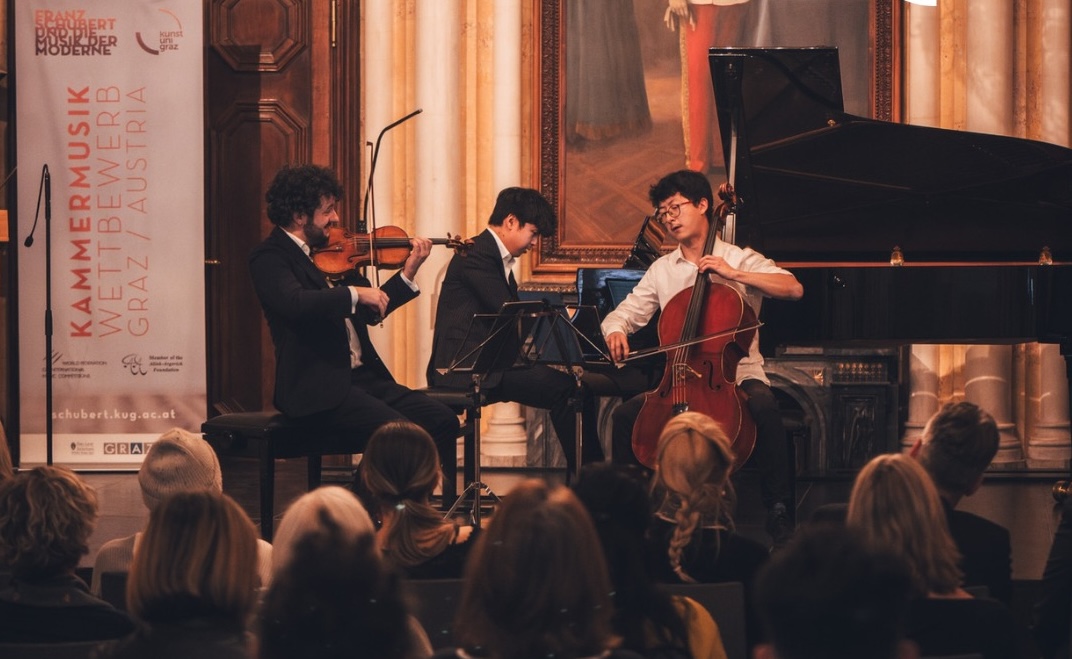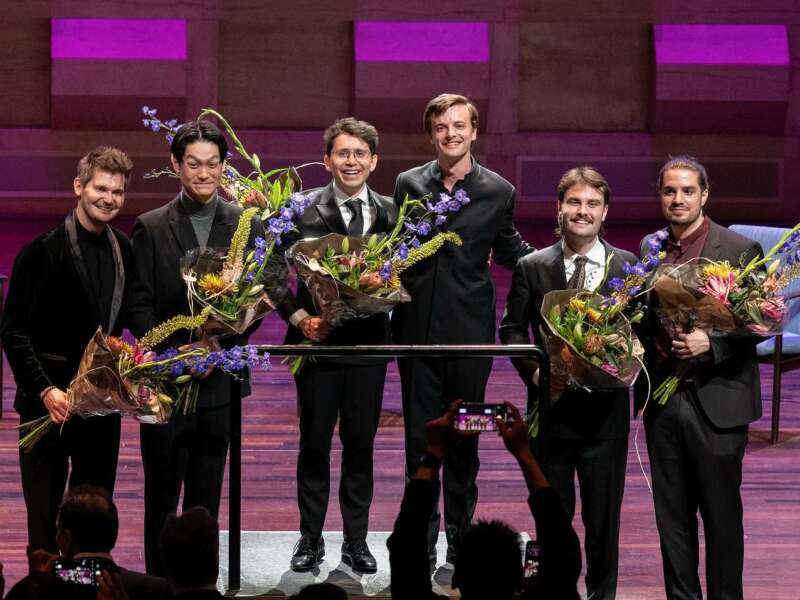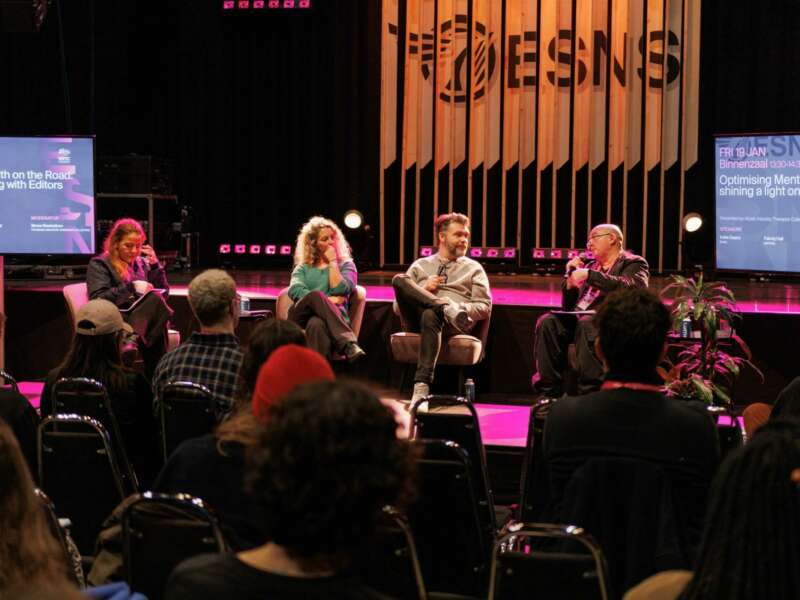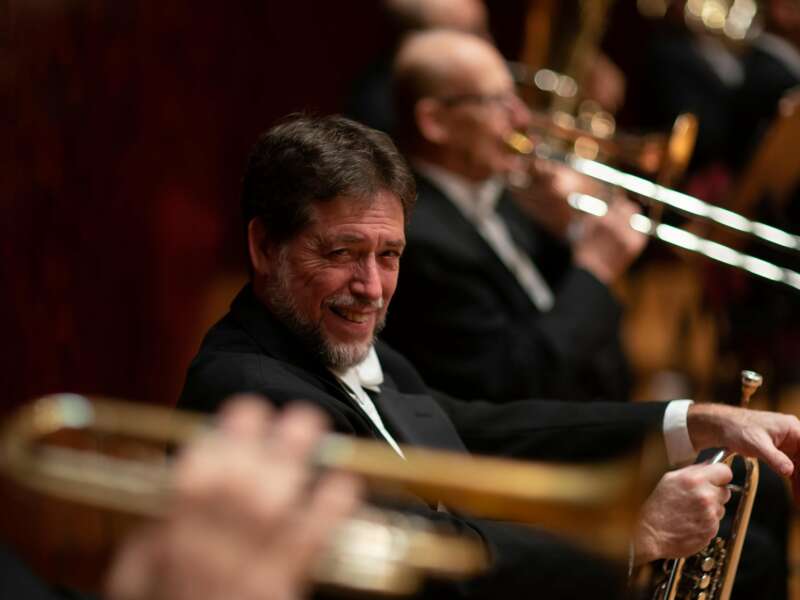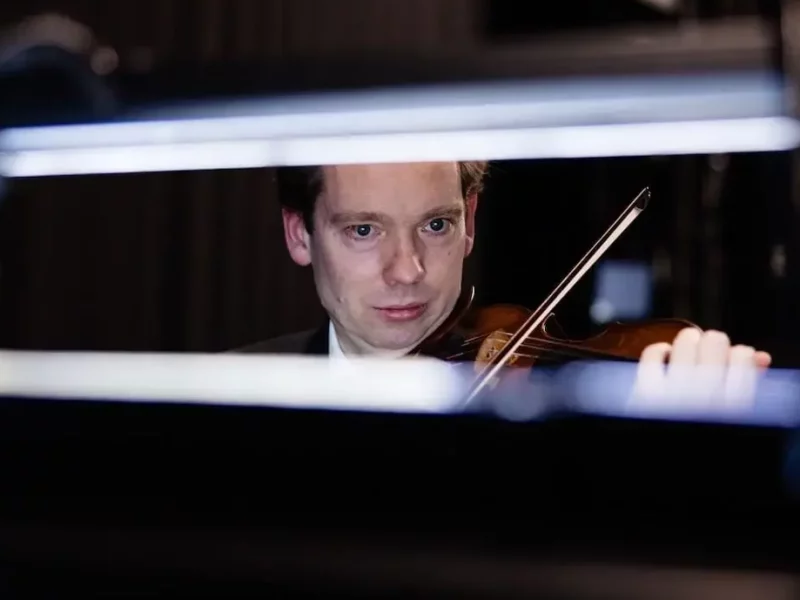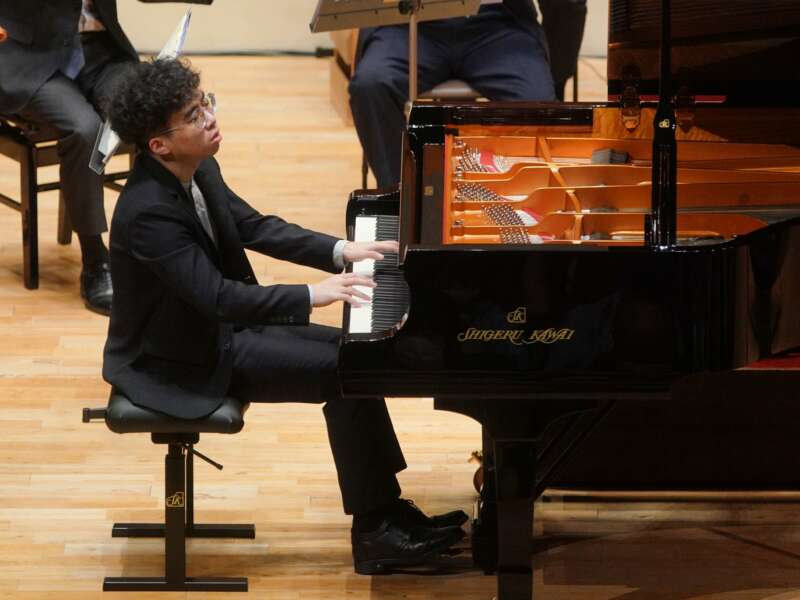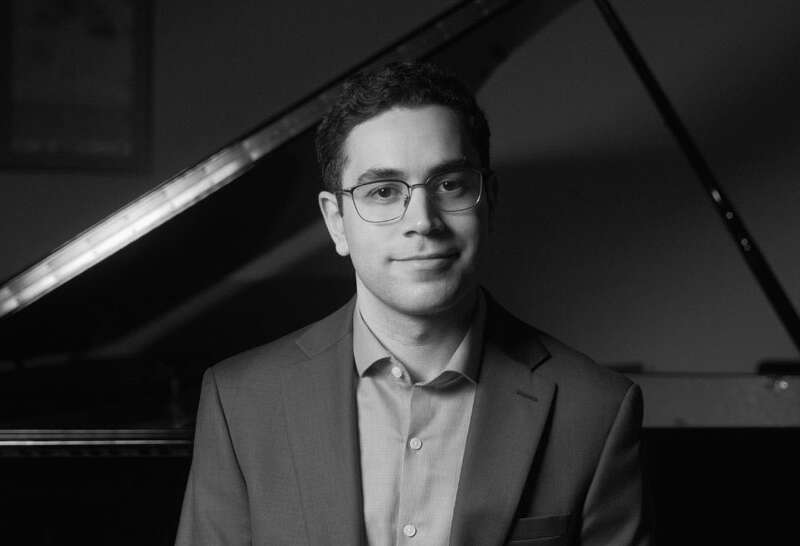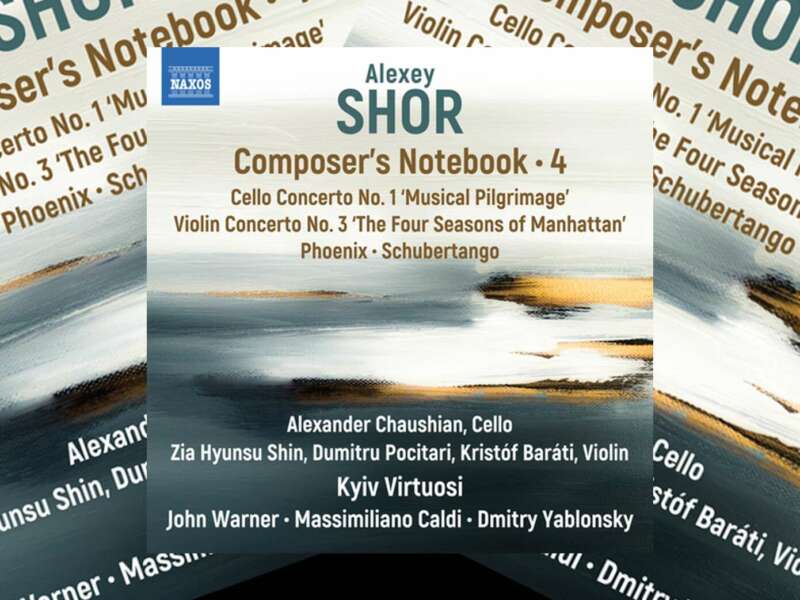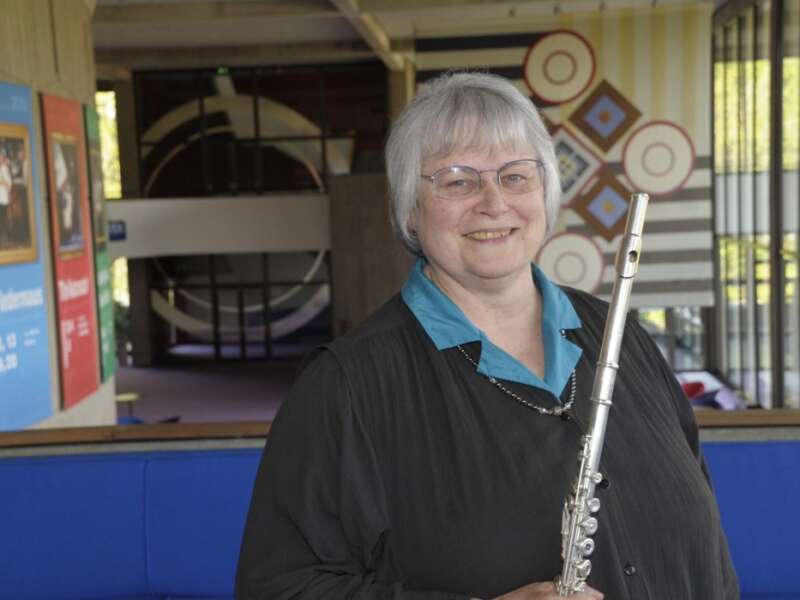What Makes the Franz Schubert and Modern Music International Chamber Music Competition Unique?
The event is open to international piano trios, piano duos, and voice and piano duos, with members aged 35 and under
The 12th International Chamber Music Competition “Franz Schubert and Modern Music” will be held at the University of Music and Performing Arts Graz from February 8–15, 2025. The triennial competition offers prize money totaling around €75,000, and career consulting and supervision for first-place prizewinners.
To apply for the competition in its respective sections, click here. The deadline for applications for all three categories is September 24, 2024.
We caught up with Britta Reininghaus, the Secretary General of the competition, to learn more.
Tell us about yourself, Britta, and your role with the Schubert Chamber Music Competition.
We have to look back a little – it is now almost 30 years since I started working at the University of Music and Performing Arts Graz (KUG) and, among other tasks, took over as General Secretary of the International Chamber Music Competition "Franz Schubert and Modern Music." Originally "Schubert and the Music of the 20th Century," this competition has gained incredible importance and has developed into a worldwide brand of which the KUG is proud. In particular, the demanding contemporary repertoire required – which is kept up to date from edition to edition by the chairmen of the jury in each category (all of them KUG professors) – is seen as trend-setting at many universities and acts as a guide for ‘what to play’ in the contemporary field.
Can you tell us about the history of this event?
In Styria, the Austrian province where we are based, there was a prominent figure from the House of Habsburg: Archduke Johann. He focused on the interplay between tradition and modernity. It was this concept that inspired the idea of combining Schubert's music with contemporary works, emphasizing the interplay among the musicians that characterizes chamber music. This was a matter of heart of the then Rector, Otto Kolleritsch, who was convinced that the interpretation of contemporary works would sharpen the perception of Schubert's music and vice versa.
Interestingly, you host the competition in three distinct categories. Can you tell us about this and how you chose the disciplines?
Our university cultivates various focal points, including chamber music and contemporary music. As a brief aside, we are also known as one of the first European institutions at the University level to offer jazz training, but that is another topic (see also Jazz Comp Graz).
Now to the categories: Lied Duo (judged as an ensemble), Piano Trio and Piano Duo. Schubert left us over 600 lieder, and the contemporary compositional scene in this genre is also vibrant. The piano duo category has recently been added, since the University of Music and Performing Arts in Graz has had a piano duo professorship for several years, held by the internationally renowned piano duo Sivan Silver-Garburg and Gil Garburg. Schubert´s musical heritage is one of the most extensive oeuvres of original works for four hands, and many composers of the 20th and 21st centuries have also explored '20 fingers on the piano' in exciting ways. The Piano Trio, a wonderful chamber music formation with a significant share on the music market, has been an integral part of the competition since 2006. This year we were delighted to receive 206 entries from 54 countries — two works were selected by a distinguished jury to be performed as world premieres in the semi-finals.
How has the competition aided the careers of some of your previous prize winners?
We have developed this competition with career and future prospects in mind and see it as a viable bridge between university education and entry into professional artistic life. The career program for the first prize winners picks them up where they are on the career ladder and guides them through their next steps. Looking at the 2022 prize winners, the winning Trio Orelon went on to win further first prizes in Melbourne and at the ARD competition after our competition in Graz. This paved their way to the top. We arranged a Czech premiere for mezzo-soprano Bella Adamova at the Prague Spring Festival, and she is now a BBC Rising Star.
How does the competition differ from other European chamber music competitions?
A key and internationally unique element of this competition is the juxtaposition of contemporary music with Schubert's works on an equal footing. The challenge of seriously engaging with Modern Music is an important incentive for young musicians. At the same time, we want to offer our audiences an exciting opportunity to come into contact with a wide range of contemporary pieces through our competition.
As a competition organised by a higher education institution, it is very important to us that we give something back to all participants: at the end of the competition, our high-level jurors provide detailed feedback to all those who come to the live-rounds rounds in Graz - 28 Lied duos and 20 piano trios and piano duos. In addition, we offer two days of keynotes, lectures, workshops, stage presence training, and individual coaching sessions with renowned coaches from the music industry under the motto #career.
Many participants point out that they had already benefited enormously before they even came to Graz for the competition: by immersing themselves in this very special and beautiful repertoire. They sought out and worked intensively on very special works for their presentation at the competition — more intensively than they would ever have done for a concert. For many of them, a door opens to previously undiscovered musical treasures, works that have continued to accompany them on their professional journey.
What will this year's winners receive, both in regards to prize money and career opportunities?
We don't abandon our first prize winners after the competition: the prize money is important (we give out over €75,000 in total) and we offer them an accompanying career program focusing on branding, self-management, communication training, next steps including finding ways to agencies (including the dos and don'ts) and marketing strategies. Over the course of 12 months, they will be accompanied by three renowned music industry coaches on a rotating basis. As a new feature, we are offering a professional CD production and release with an accompanying promotion to a selected ensemble from the competition. An extended jury of presenters, who will be present at the final, can award this special prize, worth around €11,000, to one of the finalists. On top of that, our cooperation partners, from the Musikverein für Steiermark to the Konzerthaus Berlin, offer concerts to the prize winners.
How do you go about picking your jury members? And, what initiatives do you have in place to ensure transparency, fairness, and integrity in your results?
On the one hand, we are looking for personalities who are experts in both worlds — Schubert's music and contemporary music — but also for those who share our spirit of looking for young musicians of excellence who want to inspire audiences creatively and who come to us with an open and honest mind and a great love of music.
We have judging rules that clearly define how the process will be conducted fairly and these are published on our website before the competition. Crucial points of the jury are a scoring system that eliminates extreme outliers in judging, jury secrecy until the semi-finals, and non-voting chairpersons. Furthermore, no juror will judge their own students. Any jury member who wants to be a part of our competition must agree to abide by these rules.
It is very important for the Artistic Board, the University Management and the Organisation team to emphasise the unifying and humanistic nature of music. Music as a common language unites people and has the potential to overcome conflicts, or at least to make them fade into the background for a while, even in politically difficult times. Our competition stands for values such as respect, tolerance, diversity and solidarity based on an international community. This is what we stand for and how we work at our university and in our competition. The genre of chamber music and its underlying idea of interaction carry this spirit. These are also the experiences that have shaped the previous editions of the competition. We are known for creating an atmosphere in which, despite the competitive nature of a competition, it is possible to provide a setting in which young musicians from all over the world can perform at their best, exchange ideas and celebrate music!
If ensembles want to apply for this 2025 event, how can they go about applying?
Visit our website Schubert.kug.ac.at
Choose your preferred category and browse through the extensive and exciting repertoire of musical treasures. Put together an individual programme for three rounds and produce a pre-selection video. The rest of the registration process can be done easily via muvac. Be quick, registration is still open until September 24, 2024.
june 2025
july 2025


